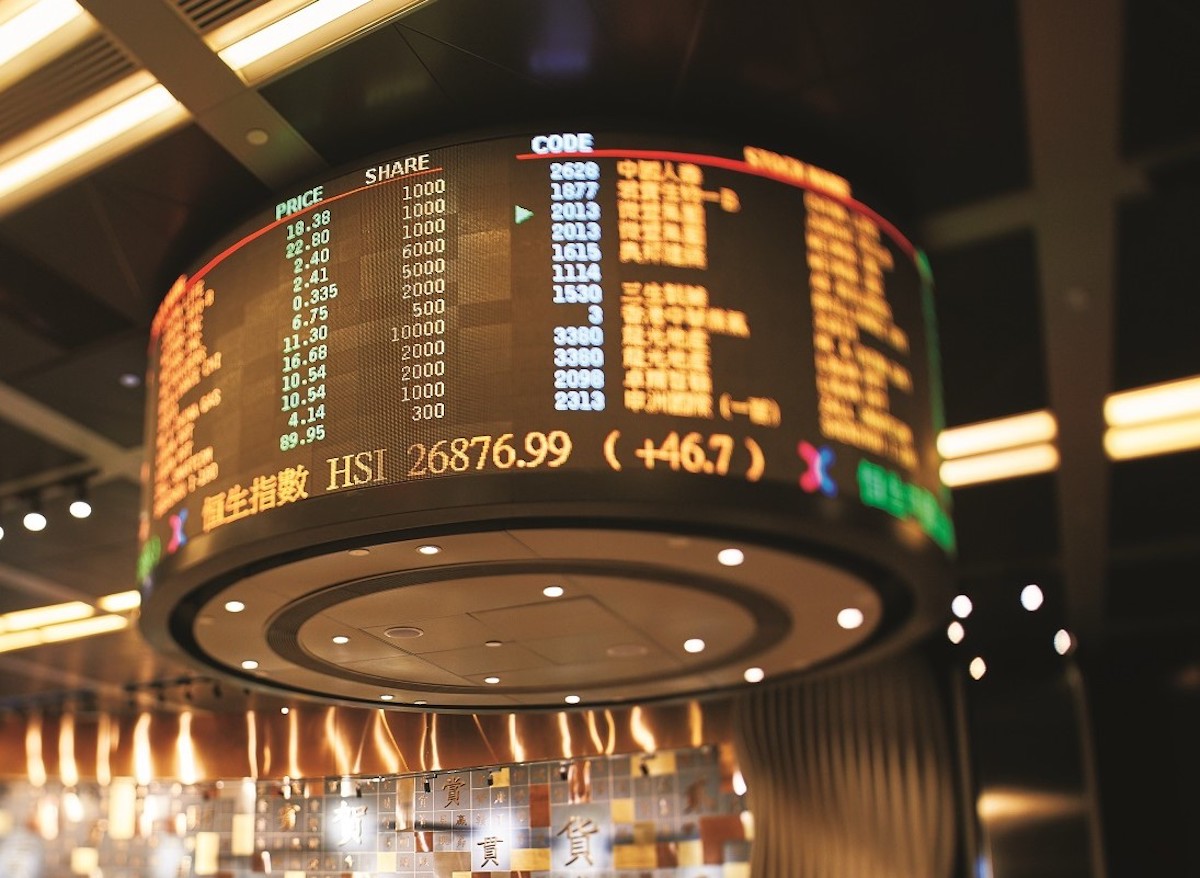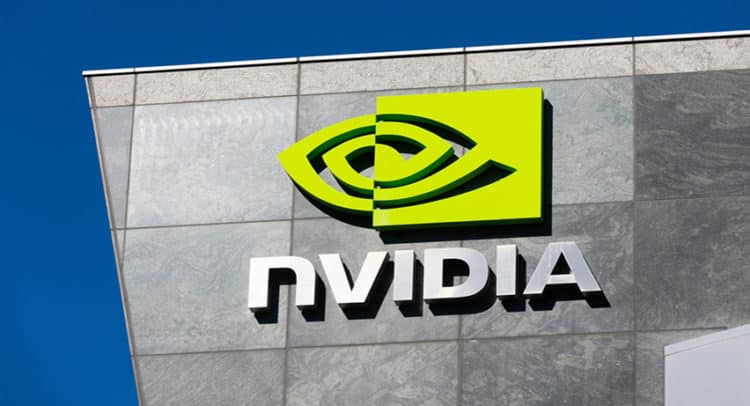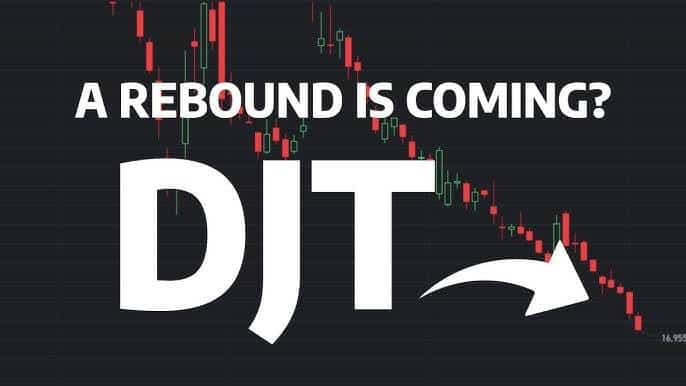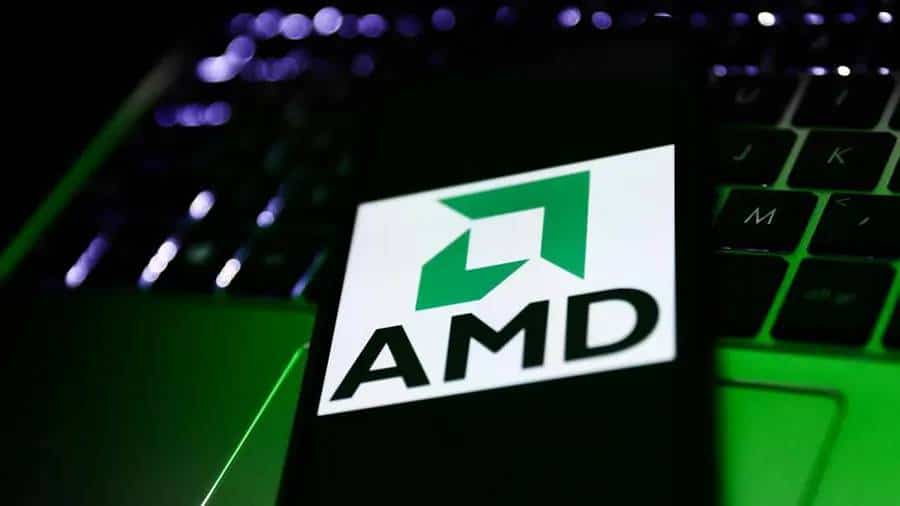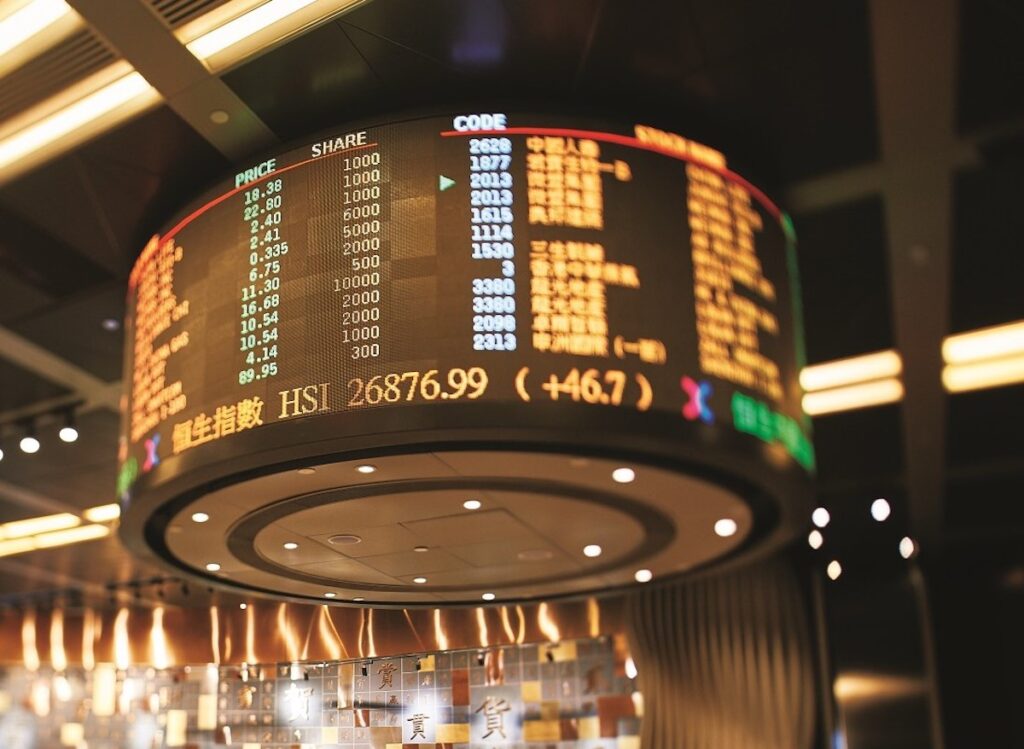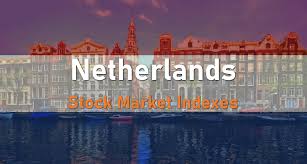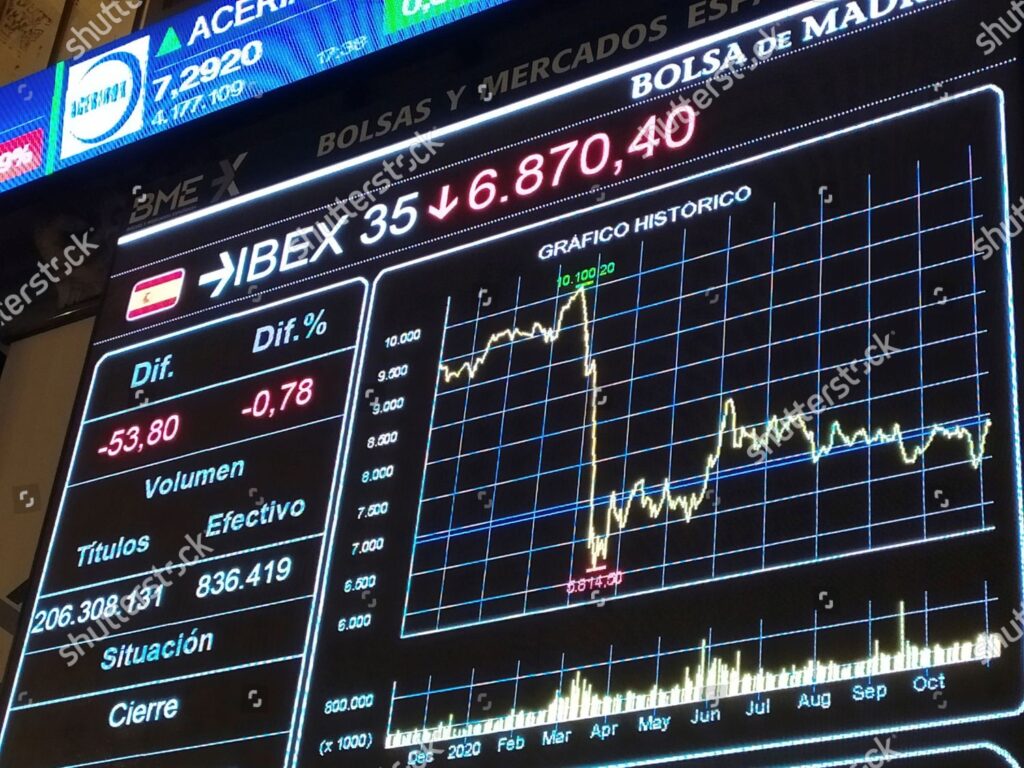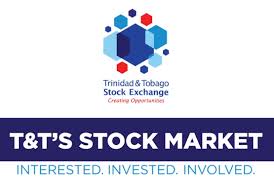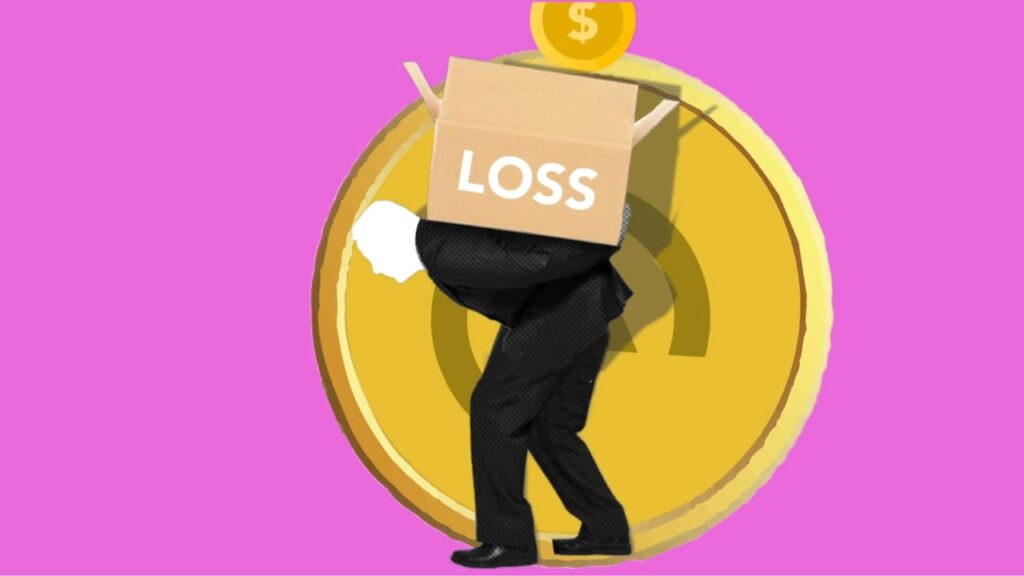Introduction to the Ljubljana Stock Exchange (LJSE)
The Ljubljana Stock Exchange (LJSE) is the primary securities exchange in Slovenia, serving as the central hub for trading stocks, bonds, and other financial instruments. Established in 1989, it has been a pivotal force in the development of the Slovenian capital market, facilitating investments and fostering economic growth.
As an investor, understanding the intricacies of the LJSE is crucial for making informed decisions and navigating the Slovenian stock market effectively. This comprehensive guide will provide you with an in-depth understanding of the exchange, its operations, and the various investment opportunities it presents.
By exploring the LJSE’s market structure, indices, trading mechanisms, and regulatory framework, you will gain valuable insights into the dynamics of the Slovenian stock market. Whether you are a seasoned investor or new to the world of equities, this guide will equip you with the knowledge and tools necessary to navigate the LJSE with confidence.
Understanding the Slovenian Stock Market
The Slovenian stock market, while relatively small compared to global financial hubs, plays a vital role in the country’s economy. It serves as a platform for companies to raise capital, facilitates investment opportunities, and contributes to the overall growth and development of the nation.
To fully appreciate the significance of the LJSE, it is essential to grasp the broader context of the Slovenian stock market. This section will delve into the market’s history, its key players, and the economic factors that shape its performance.
By understanding the market’s dynamics, you will gain valuable insights into the investment landscape, enabling you to make well-informed decisions aligned with your financial goals and risk tolerance.
Top 3 list of major stocks in Slovenia
- Krka, d.d.: A leading pharmaceutical company in Slovenia, Krka is known for its innovative products and strong presence in international markets. Its shares are among the most actively traded on the LJSE, making it a prominent investment option.
- Petrol, d.d.: As one of the largest energy companies in Slovenia, Petrol operates a network of gas stations and is involved in various energy-related activities. Its diverse business portfolio and strong market position make it an attractive stock for investors.
- Luka Koper, d.d.: Luka Koper is a maritime logistics company that operates the Port of Koper, one of the largest cargo ports in the Adriatic Sea. Its strategic location and vital role in international trade contribute to its significance in the Slovenian stock market.
Key terms in the LJSE and the Slovenian Stock Market
To navigate the LJSE and the Slovenian stock market effectively, it is essential to familiarize yourself with the following key terms:
- Prime Market: The segment of the LJSE where the most liquid and capitalized stocks are traded, subject to stringent listing requirements.
- Standard Market: This segment caters to companies that do not meet the Prime Market’s strict criteria but still offer investment opportunities.
- Entry Market: Designed for smaller companies and start-ups, the Entry Market provides a platform for early-stage businesses to raise capital.
- Market Capitalization: The total value of a company’s outstanding shares, calculated by multiplying the share price by the number of shares.
- Dividends: A portion of a company’s profits distributed to shareholders, often on a quarterly or annual basis.
- Trading Volume: The number of shares traded during a specific period, indicating the level of activity and liquidity for a particular stock.
Understanding these terms will facilitate better comprehension of market dynamics, enabling you to make informed investment decisions tailored to your specific needs and preferences.
LJSE Market structure and segments
The LJSE is structured into three distinct segments, each catering to different types of companies and investment opportunities. These segments are:
- Prime Market: This segment is reserved for the most liquid and capitalized companies in Slovenia. To be listed on the Prime Market, companies must meet stringent requirements, including a minimum market capitalization, free float, and financial performance criteria. The Prime Market offers investors exposure to well-established and reputable companies.
- Standard Market: The Standard Market is designed for companies that do not meet the Prime Market’s strict criteria but still offer investment opportunities. This segment provides a platform for companies to raise capital and increase their visibility, while offering investors access to a diverse range of investment options.
- Entry Market: The Entry Market caters to smaller companies and start-ups seeking to raise capital and gain exposure. This segment serves as an incubator for emerging businesses, allowing investors to participate in the early stages of a company’s growth journey.
By understanding the LJSE’s market structure and segments, you can better align your investment strategy with your risk tolerance and investment objectives, ensuring a well-diversified portfolio tailored to your specific needs.
Top list of stock index in Slovenia
The Slovenian stock market is represented by several indices that track the performance of various sectors and segments. Here are the top stock indices in Slovenia:
- SBI TOP: The SBI TOP is the flagship index of the LJSE, comprising the most liquid and capitalized stocks listed on the Prime Market. It serves as a benchmark for the overall performance of the Slovenian stock market and is widely followed by investors and market participants.
- SBI20: The SBI20 is a free-float capitalization-weighted index that tracks the performance of the 20 most liquid and capitalized stocks listed on the LJSE’s Prime and Standard Markets.
- SBITOP TR: The SBITOP TR is a total return version of the SBI TOP index, which includes both price movements and reinvested dividends, providing a more comprehensive measure of overall performance.
- SBI NFT CROBEX: This index tracks the performance of Slovenian and Croatian stocks listed on the LJSE and the Zagreb Stock Exchange, reflecting the integration of the two markets.
By monitoring these indices, you can gain valuable insights into the overall market trends, sector performance, and potential investment opportunities within the Slovenian stock market.
LJSE Market indices – SBI TOP and others
The LJSE features several market indices that serve as benchmarks for tracking the performance of various segments and sectors within the Slovenian stock market. The most prominent index is the SBI TOP, which comprises the most liquid and capitalized stocks listed on the Prime Market.
The SBI TOP is a free-float market capitalization-weighted index, meaning that the weight of each constituent stock is determined by its market capitalization and the number of shares available for trading (free float). This index is widely followed by investors, fund managers, and market analysts as a barometer of the overall performance of the Slovenian stock market.
In addition to the SBI TOP, the LJSE also maintains several other indices, such as the SBI20, SBITOP TR, and SBI NFT CROBEX. These indices provide investors with a comprehensive view of the market’s performance, enabling them to make informed investment decisions based on their specific objectives and risk profiles.
By understanding the composition and methodology behind these indices, you can better evaluate the performance of individual stocks, sectors, and the overall market, facilitating more effective portfolio management and investment strategies.
Trading on the LJSE – Stocks, Equities, Bonds, and Securities
The LJSE offers a diverse range of investment opportunities, including stocks, equities, bonds, and other securities. Trading on the exchange involves buying and selling these financial instruments through licensed brokers or online trading platforms.
Stocks and equities represent ownership in publicly traded companies, allowing investors to participate in the growth and success of these businesses. By purchasing shares, you become a partial owner and are entitled to a portion of the company’s profits in the form of dividends, as well as potential capital gains from share price appreciation.
Bonds, on the other hand, are debt instruments issued by governments, corporations, or other entities. When you invest in bonds, you essentially lend money to the issuer in exchange for regular interest payments and the eventual return of the principal amount upon maturity.
In addition to stocks and bonds, the LJSE also facilitates the trading of various other securities, such as exchange-traded funds (ETFs), mutual funds, and derivatives. These instruments provide investors with diversification opportunities and exposure to different asset classes, sectors, or investment strategies.
To participate in trading on the LJSE, you will need to open an account with a licensed stockbroker or online trading platform. These intermediaries will guide you through the process of placing buy and sell orders, managing your portfolio, and ensuring compliance with regulatory requirements.
Initial Public Offering (IPO) on the LJSE
An Initial Public Offering (IPO) is a significant event in a company’s lifecycle, marking its transition from a private entity to a publicly traded one. The LJSE plays a crucial role in facilitating IPOs for Slovenian companies seeking to raise capital and gain access to the public equity markets.
During an IPO, a company offers its shares to the public for the first time, allowing investors to become shareholders and participate in the company’s future growth and success. This process involves a rigorous due diligence process, regulatory approvals, and extensive marketing efforts to attract potential investors.
The LJSE’s IPO process is governed by strict regulations and guidelines to ensure transparency, fairness, and investor protection. Companies seeking to list on the exchange must meet specific criteria, such as minimum financial performance, corporate governance standards, and disclosure requirements.
Participating in an IPO on the LJSE can be an exciting opportunity for investors to get in on the ground floor of a promising company. However, it is essential to conduct thorough research, understand the company’s business model, and carefully evaluate the risks and potential rewards before making an investment decision.
Slovenian Sovereign Holding (SSH) and its role in the LJSE
The Slovenian Sovereign Holding (SSH) is a state-owned entity that plays a crucial role in the management and oversight of state-owned enterprises and their participation in the LJSE. The SSH acts as a strategic investor, representing the interests of the Slovenian government in various companies and sectors.
One of the primary functions of the SSH is to manage the state’s shareholdings in companies listed on the LJSE. This includes exercising voting rights, appointing representatives to the boards of directors, and ensuring that the companies adhere to good corporate governance practices.
Additionally, the SSH is responsible for implementing the government’s privatization strategies, which may involve the sale or acquisition of shares in state-owned enterprises. This process is carried out through the LJSE, providing investors with opportunities to participate in the ownership of these companies.
The SSH’s involvement in the LJSE helps to promote transparency, accountability, and responsible stewardship of state-owned assets. By aligning the interests of the government and private investors, the SSH plays a pivotal role in fostering a robust and sustainable capital market in Slovenia.
Financial Supervisory Authority (Agencija za trg vrednostnih papirjev – ATVP) and its regulatory role
The Financial Supervisory Authority (Agencija za trg vrednostnih papirjev – ATVP) is the regulatory body responsible for overseeing the Slovenian capital market, including the LJSE. Its primary role is to ensure the integrity, transparency, and fairness of the financial markets, while protecting the interests of investors.
The ATVP is tasked with enforcing securities laws and regulations, monitoring market activities, and investigating potential cases of market abuse or insider trading. It also plays a crucial role in licensing and supervising market participants, such as stockbrokers, investment advisors, and other financial intermediaries.
One of the key functions of the ATVP is to review and approve prospectuses for public offerings, ensuring that companies provide accurate and complete information to potential investors. This process helps to maintain transparency and facilitate informed decision-making by market participants.
Additionally, the ATVP is responsible for setting and enforcing rules related to corporate governance, disclosure requirements, and accounting standards for publicly traded companies. These measures aim to promote fair and ethical business practices, safeguarding the interests of shareholders and stakeholders.
By maintaining a robust regulatory framework and fostering a culture of compliance, the ATVP contributes to the overall stability and integrity of the Slovenian capital market, including the LJSE. Investors can have confidence in the market’s operations, knowing that there are stringent measures in place to protect their interests and ensure a level playing field.
Investment opportunities on the LJSE – Market Capitalization, Dividends, and Trading Volume
The LJSE offers a diverse range of investment opportunities, catering to investors with varying risk profiles and investment objectives. Three key factors to consider when evaluating potential investments on the exchange are market capitalization, dividends, and trading volume.
- Market Capitalization: Market capitalization, or market cap, is a measure of a company’s total market value, calculated by multiplying the number of outstanding shares by the current share price. Companies with larger market caps are generally considered more established and stable, while smaller market caps may offer higher growth potential but also carry higher risks.
- Dividends: Many companies listed on the LJSE distribute a portion of their profits to shareholders in the form of dividends. Dividend-paying stocks can provide a steady stream of income for investors, in addition to potential capital appreciation. However, it’s important to evaluate a company’s dividend history, payout ratio, and long-term sustainability before investing solely for dividend income.
- Trading Volume: Trading volume refers to the number of shares traded during a specific period, typically measured on a daily or monthly basis. Stocks with higher trading volumes are generally considered more liquid, meaning it is easier to buy and sell shares without significantly impacting the market price. Liquidity is an important consideration for investors, as it can affect the ease of entry and exit from a position.
By analyzing these factors, investors can better understand the risk-reward profile of potential investments and make informed decisions that align with their investment goals and risk tolerance. Additionally, diversification across different market capitalizations, sectors, and investment styles can help mitigate overall portfolio risk.
LJSE Market liquidity and its impact on investors
Market liquidity is a critical factor that investors should consider when trading on the LJSE. Liquidity refers to the ease with which an asset can be bought or sold without significantly affecting its price. A liquid market allows investors to execute trades quickly and efficiently, minimizing the impact of large buy or sell orders on the market price.
The LJSE’s market liquidity is influenced by several factors, including trading volume, the number of market participants, and the availability of market makers. Stocks with higher trading volumes and a larger number of buyers and sellers tend to be more liquid, as there is a constant flow of orders that can be matched efficiently.
Market makers, which are specialized firms or individuals that provide buy and sell quotes for specific securities, play a crucial role in enhancing market liquidity. They facilitate the smooth execution of trades by standing ready to buy or sell securities at quoted prices, helping to maintain an orderly market.
High liquidity is generally desirable for investors, as it allows for easier entry and exit from positions, reducing the risk of significant price slippage or unfavorable execution. However, it’s important to note that liquidity can vary among different stocks and market conditions, with some securities being more liquid than others.
Investors should consider liquidity when constructing their portfolios and developing trading strategies. Holding a diversified portfolio of liquid securities can help mitigate the risks associated with illiquid investments and ensure that positions can be adjusted or exited as needed, based on changing market conditions or investment objectives.
How to choose a stockbroker for LJSE trading
Choosing the right stockbroker is a critical decision for investors looking to trade on the LJSE. A stockbroker acts as an intermediary, facilitating the buying and selling of securities on your behalf. With numerous brokers operating in the Slovenian market, it’s essential to evaluate various factors to find the one that best suits your investment needs and preferences.
Here are some key considerations when selecting a stockbroker for LJSE trading:
- Regulatory Compliance: Ensure that the stockbroker is licensed and regulated by the Financial Supervisory Authority (ATVP) or other relevant authorities. This ensures that the broker adheres to industry standards and provides a level of investor protection.
- Trading Platform: Evaluate the broker’s trading platform in terms of user-friendliness, functionality, and accessibility. A robust platform with real-time quotes, charting tools, and research capabilities can greatly enhance your trading experience.
- Commission and Fees: Compare the commission rates and fees charged by different brokers for trading on the LJSE. While lower fees are generally preferable, it’s essential to balance cost with the quality of services and execution.
- Research and Analysis: Assess the broker’s research and analysis capabilities, including access to market reports, company analysis, and expert insights. Quality research can inform your investment decisions and provide a competitive edge.
- Customer Service: Consider the broker’s reputation for customer service, responsiveness, and support. A reliable and knowledgeable support team can be invaluable, especially for new or inexperienced investors.
- Account Types: Evaluate the different account types offered by the broker, such as individual, joint, or retirement accounts, to ensure they align with your investment goals and tax considerations.
- Additional Services: Some brokers may offer additional services like portfolio management, financial planning, or educational resources, which could be valuable depending on your investment needs.
By carefully evaluating these factors and conducting thorough research, you can increase your chances of finding a stockbroker that aligns with your investment objectives, risk tolerance, and trading style, ultimately enhancing your overall experience on the LJSE.
Clearing and settlement of LJSE trades – Central Securities Clearing Corporation (KDD)
The clearing and settlement of trades on the LJSE is a critical process that ensures the efficient transfer of securities and funds between buyers and sellers. This process is facilitated by the Central Securities Clearing Corporation (KDD), which acts as the central counterparty and clearing house for the Slovenian capital market.
The KDD plays a pivotal role in maintaining the integrity and stability of the LJSE by mitigating counterparty risk and ensuring the timely settlement of trades. It operates a robust clearing and settlement system that follows internationally recognized standards and best practices.
When a trade is executed on the LJSE, the KDD steps in as the central counterparty, becoming the buyer to every seller and the seller to every buyer. This process, known as novation, effectively eliminates counterparty risk by ensuring that each party only faces the KDD as their counterparty, rather than the individual buyer or seller.
After the trade is novated, the KDD performs various clearing and risk management functions, including the calculation of margins, the management of collateral, and the netting of trades to minimize settlement obligations. This process helps to reduce systemic risk and ensure the efficient use of capital within the market.
Once the clearing process is complete, the KDD facilitates the settlement of trades by coordinating the transfer of securities and funds between the respective accounts of the buyers and sellers. This process typically occurs on a predetermined settlement cycle, which in the case of the LJSE is currently T+2 (trade date plus two business days).
The KDD’s settlement process involves the simultaneous transfer of securities and funds, known as delivery versus payment (DVP), to ensure that neither party is left exposed to counterparty risk. This robust mechanism provides confidence to market participants and contributes to the overall stability and efficiency of the LJSE.
In addition to its clearing and settlement functions, the KDD also plays a crucial role in maintaining the central securities depository for the Slovenian market. It acts as the custodian for dematerialized securities, ensuring the accurate recording and safekeeping of ownership records.
By leveraging advanced technology and adhering to strict risk management protocols, the KDD ensures the smooth and reliable clearing and settlement of trades on the LJSE, fostering trust and confidence among market participants and facilitating the efficient flow of capital within the Slovenian economy.
Investment options beyond stocks – Investment Funds and ETFs on the LJSE
While stocks and equities are the primary investment vehicles traded on the LJSE, the exchange also offers a range of other investment options, including investment funds and exchange-traded funds (ETFs). These instruments provide investors with diversification opportunities and exposure to different asset classes, sectors, or investment strategies.
- Investment Funds: The LJSE lists various investment funds, including mutual funds and closed-end funds, which are managed by professional fund managers. These funds pool together capital from multiple investors and invest in a diversified portfolio of assets, such as stocks, bonds, or other securities. Investment funds offer investors the benefit of professional management, diversification, and the potential for higher returns compared to individual stock investments.
- Exchange-Traded Funds (ETFs): ETFs are investment vehicles that track the performance of a specific index, sector, or asset class. They are traded on the LJSE like regular stocks, allowing investors to buy and sell shares throughout the trading day. ETFs provide investors with exposure to a broad range of assets, including stocks, bonds, commodities, and currencies, while offering the benefits of diversification, low costs, and tax efficiency.
Investing in investment funds and ETFs on the LJSE can be an attractive option for investors seeking to diversify their portfolios and gain exposure to different markets or investment strategies. However, it’s essential to carefully evaluate the investment objectives, fees, and risk profiles of these instruments before making any investment decisions.
Additionally, investors should consider factors such as the fund’s track record, management team, and investment philosophy to ensure alignment with their financial goals and risk tolerance. By incorporating investment funds and ETFs into their portfolios, investors can potentially enhance their overall returns and manage risk more effectively.
Risks and challenges in LJSE investing
While investing in the LJSE can offer attractive opportunities for growth and portfolio diversification, it is essential to be aware of the potential risks and challenges associated with this market. By understanding these factors, investors can make informed decisions and implement appropriate risk management strategies.
- Market Volatility: Like any stock market, the LJSE is subject to fluctuations in market conditions, driven by factors such as economic indicators, geopolitical events, and investor sentiment. Volatility can lead to significant price movements, both upwards and downwards, posing risks for investors who may experience substantial losses or missed opportunities.
- Liquidity Risks: The LJSE is a relatively small market compared to global exchanges, which can result in liquidity challenges for certain stocks or sectors. Low trading volumes can make it difficult to execute trades efficiently, potentially leading to wider bid-ask spreads and increased transaction costs.
- Currency Risks: For international investors, fluctuations in the exchange rate between the Euro (the currency used on the LJSE) and their home currency can impact the value of their investments and returns. Effective currency risk management strategies may be necessary to mitigate potential losses.
- Political and Regulatory Risks: Changes in government policies, regulations, or taxation can significantly impact the performance of companies listed on the LJSE, as well as the overall market environment. Investors should stay informed about potential political and regulatory developments that could affect their investments.
- Concentration Risks: The Slovenian stock market is relatively concentrated, with a few large companies dominating certain sectors. This concentration can increase the overall risk exposure of investors, as the performance of their portfolios may be heavily influenced by the fortunes of a small number of companies or industries.
To navigate these risks effectively, investors should consider diversifying their portfolios across different sectors, asset classes, and geographic regions. Additionally, conducting thorough research, monitoring market conditions, and seeking professional advice from licensed financial advisors can help mitigate potential risks and enhance investment outcomes.
Resources for LJSE market information and analysis
Staying informed and up-to-date with the latest developments in the LJSE and the Slovenian stock market is crucial for making well-informed investment decisions. Fortunately, there are numerous resources available to investors, ranging from official sources to independent analysis and research platforms.
- Ljubljana Stock Exchange (LJSE) Website: The official website of the LJSE is a valuable resource for investors, providing real-time market data, company information, regulatory filings, and news updates. The website also offers educational materials and investor guides to help navigate the Slovenian stock market.
- Financial Supervisory Authority (ATVP): The ATVP is the regulatory body responsible for overseeing the Slovenian capital market. Its website provides access to important regulations, guidelines, and investor protection resources, ensuring transparency and compliance within the market.
- Brokerage Firms and Investment Banks: Many brokerage firms and investment banks operating in Slovenia offer research reports, market analysis, and investment recommendations to their clients. These resources can provide valuable insights into specific companies, sectors, or market trends.
- Financial News Outlets: Local and international financial news outlets, such as Finance.si, Dnevnik, and Bloomberg, offer regular coverage and analysis of the LJSE and the Slovenian economy. These sources can help investors stay informed about market developments, company news, and macroeconomic factors that may impact their investments.
- Investment Blogs and Forums: Online investment blogs and forums dedicated to the Slovenian stock market can be valuable sources of information, analysis, and investor discussions. These platforms often feature contributions from experienced investors, analysts, and market professionals, offering unique perspectives and insights.
- Social Media: Financial institutions, brokerage firms, and individual investors often share market updates, news, and analysis on social media platforms like Twitter and LinkedIn. Following reputable sources can provide real-time access to relevant information and discussions.
By leveraging these resources and staying informed about market developments, investors can make more informed decisions, identify potential opportunities, and manage risks more effectively when investing in the LJSE and the Slovenian stock market.
The Ljubljana Stock Exchange (LJSE) and the Slovenian stock market offer a diverse range of investment opportunities for investors seeking to diversify their portfolios and participate in the growth of the Slovenian economy. By understanding the market structure, regulatory framework, trading mechanisms, and investment options available, investors can navigate this dynamic market with confidence.
Throughout this comprehensive guide, we have explored the various aspects of the LJSE, including its market segments, indices, trading processes, and the roles of key institutions such as the Slovenian Sovereign Holding (SSH) and the Financial Supervisory Authority (ATVP). Additionally, we have delved into the investment opportunities beyond stocks, including investment funds and exchange-traded funds (ETFs), as well as the risks and challenges associated with investing in the LJSE.
As you embark on your investment journey in the Slovenian stock market, remember the importance of conducting thorough research, seeking professional advice when necessary, and staying informed about market developments. By leveraging the resources and tools available, you can make well-informed decisions that align with your investment goals and risk tolerance.
The LJSE and the Slovenian stock market offer a unique opportunity to participate in the growth and success of Slovenian companies, while contributing to the overall development of the nation’s economy. With a deep understanding of the market dynamics and a well-crafted investment strategy, you can navigate this exciting landscape and potentially achieve attractive returns on your investments.
To get started on your LJSE investment journey, we recommend opening an account with a reputable stockbroker licensed to operate in Slovenia. Our team of financial advisors at [Company Name] can guide you through the process, provide personalized investment advice, and help you build a diversified portfolio tailored to your specific needs and objectives. Contact us today to schedule a consultation and take the first step towards unlocking the potential of the Slovenian stock market.
Remember, investing in the stock market involves risks, and it is crucial to carefully evaluate your risk tolerance and investment objectives before making any decisions. By staying informed, diversifying your portfolio, and seeking professional guidance when needed, you can navigate the LJSE and the Slovenian stock market with confidence, seizing opportunities while managing risks effectively.

